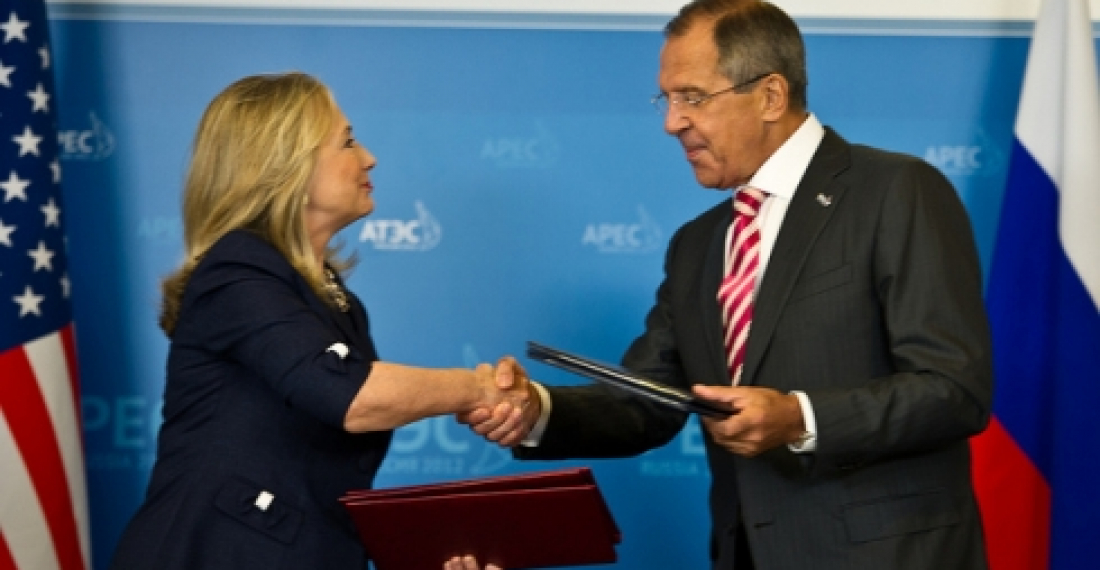US Secretary of State Hilary Clinton and Russian Foreign Minister Sergei Lavrov discussed Karabakh during a working breakfast in the Russian Pacific Port of Vladivostok on Saturday, ahead of the opening of the Summit of the Asia-Pacific Nations.
According to a spokesperson for the US State Department they discussed a range of international issues over breakfast, which included blini and caviar.
The State Department spokeperson speaking to journalists on the record said that
"they also compared notes briefly on the Nagorno-Karabakh. As you know, we had this incident that we were quite unhappy about where an Azerbaijani who had been incarcerated in Hungary was recently released. And there again, in the context of the UN General Assembly, we generally try, as Minsk Group partners, to do some kind of Nagorno-Karabakh event. So the question becomes whether that makes sense now, whether we can be supportive in calming tensions between Armenia and Azerbaijan."
Asked what were the expectations from such meeting the American official said
"traditionally the UN General Assembly has been a time when Minsk Group countries have been able to – have pulled together either at the Assistant Secretary level or higher to try to encourage progress, et cetera. The environment is more difficult this year in light of this past incident. So they had a general conversation about trying to stay in touch and see whether we could cool things down and try to improve the environment heading into UNGA since everybody is usually there."
When asked if that 'would be sort of a normal Minsk?", the State department official replied: "Yeah, yeah, yeah. There’s not an expectation of a breakthrough."
source: commonspace.eu with the US State Department
photot: Hilary Clinton and Sergey Lavrov in Vladivostok (picture courtesy of the US State Department)







